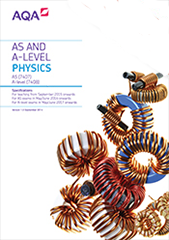Project Description
Course Overview
AQA Qualification Code: 7408
WJEC Qualification Code: 1420QS
Swansea College has created a new programme for A Level Science.
Additional Benefits for A Level Physics Plus Course
- Online course
- Email support with subject tutor
- 2 online mock assessments
- Predicted results
- Reference
- UCAS application support
The Classroom Environment
Our online/in-person classes are small making learning more accessible for learners and gives the classroom environment a calm atmosphere to learn. Having a limited number of students in the classroom gives the students more one-on-one time with their teacher, for teachers to review students’ work, to provide feedback on what went well, and how to improve students’ work for the future.
About our teachers
Our teachers are enthusiastic about learning. Teachers will support students towards their individual pathways in education. Whether the student wishes to understand more subject knowledge if the student wishes to gain their qualification in A-Level Biology, A-Level Chemistry, and/or A-Level Physics. Our teachers are here to help!
When will the programme take place?
Lessons
Course fees
- £80.00 enrolment fee
- £1,200.00 per subject.
How to apply
Further information
Take Your Exams at Swansea College Exam Centre
Swansea Online Learning College can provide a guaranteed exam space in our affiliated exam centre taking away the hassle of needing to find your own.
⇒ Click to register for your exams today…
Course Contents
The course is structured into bite-sized parts:
- Fundamental (base) units
- Mass, length, time, quantity of matter, temperature,
- Electric current
- SI units
- SI prefixes, values and standard
- Light intensity
- Prefixes
- Unit converting
- Random and systematic errors
- Uncertainty
- Graph using error bars
- Gradient uncertainties
- Straight-line graph
- Magnitude
- Values of physical quantities
- Constituents of the atom
- Stable and unstable nuclei
- Particles, antiparticles and photons
- Particle interactions
- Classification of particles
- Quarks and antiquarks
- Applications of conservation laws
- The photoelectric effect
- Collisions of electrons with atoms
- Energy levels and photon emission
- Wave-particle duality
- Progressive waves
- Longitudinal and transverse waves
- Formation of stationary waves
- Interference
- Diffraction
- Refraction at a plane surfac
- Scalars and vectors
- Moments
- Motion along a straight line
- Projectile motion
- Newton’s laws of motion
- Momentum
- Work, energy and power
- Conservation of energy
- Bulk properties of solids
- The Young modulus
- Basics of electricity
- Current–voltage characteristics
- Resistivity
- Circuits
- Potential divider
- Electromotive force and internal resistance
- Circular motion
- Simple harmonic motion (SHM)
- Simple harmonic systems
- Forced vibrations and resonance
- Thermal energy transfer
- Ideal gases
- Molecular kinetic theory model
- Fields
- Newton’s law
- Gravitational field strength
- Gravitational potential
- Orbits of planets and satellites
- Electric fields
- Electric field strength
- Electric potential
- Capacitance
- Parallel plate capacitor
- Energy stored by a capacitor
- Capacitor charge and discharge
- Magnetic flux density
- Moving charges in a magnetic field
- Magnetic flux and flux linkage
- Electromagnetic induction
- Alternating currents
- The operation of a transformer
- α, β and γ radiation
- Radioactive decay
- Nuclear instability
- Nuclear radius
- Mass and energy
- Induced fission
- Safety aspects
- Astronomical telescope consisting of two converging lenses
- Reflecting telescopes
- Single dish radio telescopes, I-R, U-V and X-ray telescopes
- Advantages of large diameter telescopes
- Classification by luminosity
- Absolute magnitude, M
- Classification by temperature, black-body radiation
- Principles of the use of stellar spectral classes
- The Hertzsprung-Russell (HR) diagram
- Supernovae, neutron stars and black holes
- Doppler effect
- Hubble’s law
- Quasars
- Detection of exoplanets
Assessment
This qualification is linear. Linear means that students will sit all their exams at the end of the course.
To achieve the full Biology A Level you will be assessed across all 3 parts. All parts will be assessed by three paper-based examinations and practical assessments.
Course Duration
Study Method
Course Outcome
A Level in Biology (you must take the A Level exams and practical assessment to achieve this). Upon successful completion of the exams, you will receive an A Level in Biology issued by AQA/WJEC
Thinking of Going to University?
A Levels are assessed primarily through examinations, and in some cases, coursework and/or practicals too, which are then combined to give a final grade. If you are planning to go on to higher education, this grade can then be translated into Universities and Colleges Admissions Service (UCAS) points. You will be awarded up to 56 points per A Level which can then be added together to reach the total number of UCAS points required by your chosen university.
Take Your Exams at Swansea College Exam Centre
Swansea Online Learning College can provide a guaranteed exam space in our affiliated exam centre taking away the hassle of needing to find your own.
Register for your exams today…
Have a question? Ask our virtual assistant on live chat below
or call us on 01792 535000 and speak to our experienced Student Adviser.



